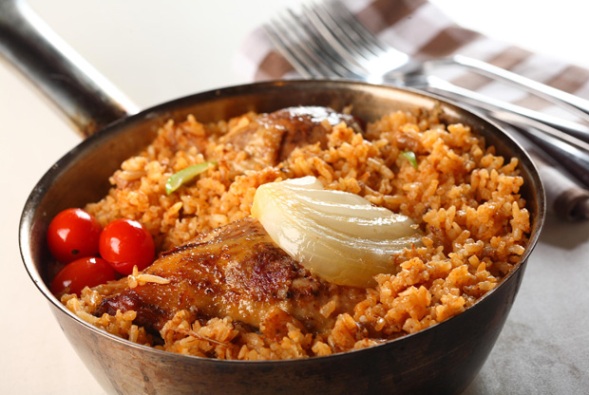Best Cholent Ever for Shabbat?
Mar 1, 2013

Photo by: Dan Peretz
Every Jewish community around the world developed its own version of a hot meal that conforms to the prohibition of cooking on the Sabbath: Ashkenazi Jews have cholent, Sephardic Jews have hamin, Central and Western European Jews have shalet, and Iraqi Jews have tebit. The trick for making all these dishes Shabbat-friendly is simple: You bring the pot to a boil on Friday afternoon, in the last minute before the Sabbath rears its holy head, and let it simmer until the next day. All these different versions of Shabbat stews, stemming from each and every corner of the Diaspora, have made it safely to Israel. But these days, the exotic and extremely sticky tebit is more popular than ever—and not only among Iraqi Jews.
All these different versions of Shabbat stews, stemming from each and every corner of the Diaspora, have made it safely to Israel. But these days, the exotic and extremely sticky tebit is more popular than ever—and not only among Iraqi Jews.
Tebit begins with chicken, or more specifically, the skin—traditionally the skin of an entire chicken. The skin is then filled with a mixture of rice, chopped chicken, and herbs. In this respect, tebit is comparable not only to cholent but also to helzel, an Ashkenazi dish that also involves stuffing a chicken skin.
But while helzel is made by stuffing the skin of a chicken neck, thus sometimes making it just one of the components of cholent, tebit is a whole meal in itself. After long hours of slow cooking, tebit’s rice mixture becomes the chicken skin’s whole world; it is not only filled by it, but the rice also surrounds it.
Tebit, which has become a sought-after dish in Israel’s various home-cooking markets, operating mainly on Fridays and supplying take-out food for the weekend, is an excellent example of Iraqi cuisine as it contains two of its key ingredients: rice and the savory and fragrant baharat. This spice blend differs from country to country, and even the Iraqi baharat has various versions, with ingredients ranging approximately from seven to 16 different spices—usually including cardamom, cinnamon, cloves, coriander, cumin, nutmeg, paprika, and black pepper.
As ethnic food grows more popular in Israel, tebit is increasingly in demand outside the Iraqi community.
Read the full article here.



